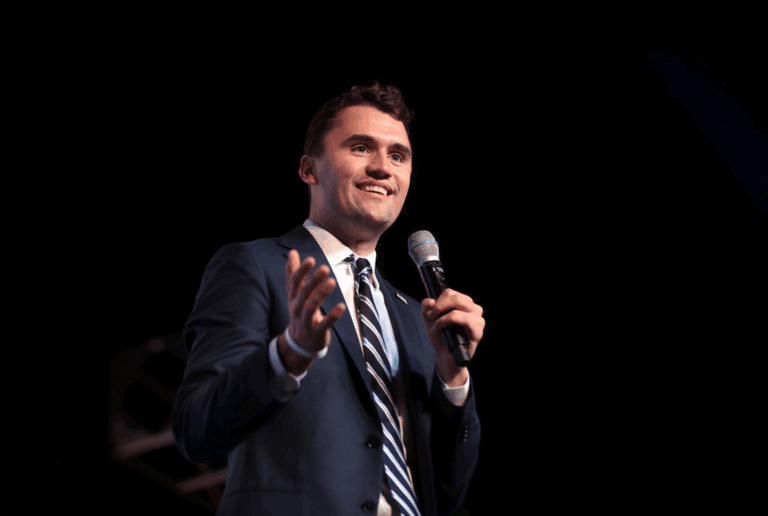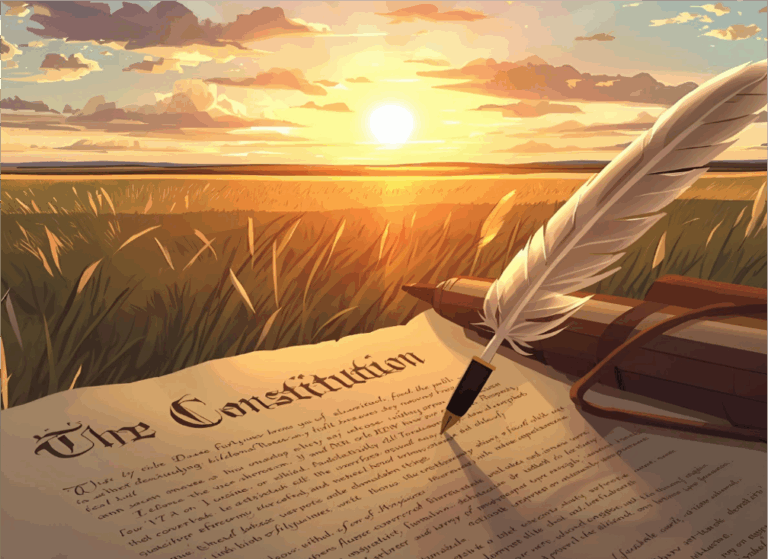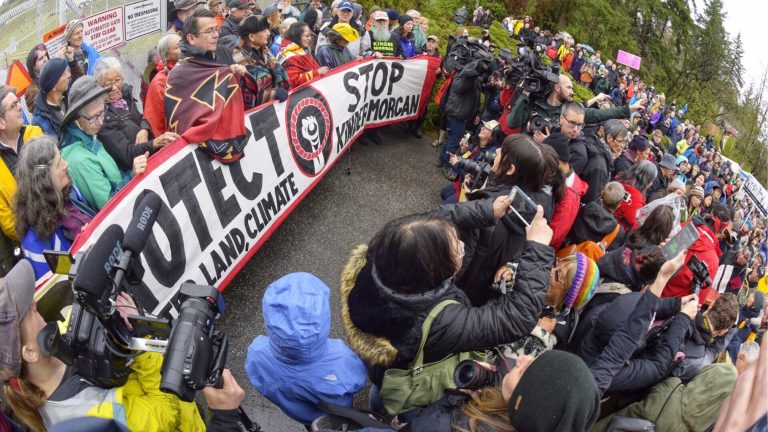A C2C Journal Debate Between
Peter Stockland and Michael Walker
A note from C2C’s editorial board chair:
Canada’s Journal of Ideas, C2C Journal, asked two of Canada’s leading thinkers to consider the question of whether capitalism needs an outside morality to survive. So we asked Michael Walker, the founder of the Fraser Institute and now head of the Free Market Foundation, and Peter Stockland, president of the Cardus Centre for Cultural Renewal and a longtime journalist, including as editorial page editor of the Calgary Herald and editor of Reader’s Digest, to debate this question: “Be it resolved that markets cannot function without a basis in shared religious belief.” Peter Stockland goes first; check back soon for Michael Walker’s column.
-Mark Milke, editorial board chair, C2C Journal.ca, Canada’s Journal of Ideas
“Be it resolved that markets cannot function without a basis in shared religious belief.”
In the Affirmative:
Wickedness lies at the heart of every trampling mob—Peter Stockland
Wendell Berry tells the story of a barber friend of his who refused to give a discount to a bald-headed customer. The barber was no capitalist cutthroat, Berry says. He was an artisan.
“His artistry consisted not in the cutting off, but in the knowing when to stop,” he writes. “He spoke, I think, as a true artist and a true human.”
Anecdote and admonition appear in Berry’s essay collection Home Economics, which was first published in 1982. Had both been heeded in the succeeding three decades, we would certainly have limited, perhaps avoided, the global economic debacle of 2008.
Ignoring when to stop was a key behavior behind the crisis that haunts us still. Its manifestation is a market phenomenon identified as “rational irrationality” wherein self-interest is the catalyst for the high-functioning delusion that it makes sense to run with a trampling mob as long as you remain in front. All that is required is to be deliberately ignorant of the nature of trampling mobs and the reality of exhaustion.
“The lack of such knowledge is extremely dangerous in and to an individual,” Berry warns. “But ignorance of when to stop is a modern epidemic; it is the basis of “industrial progress” and “economic growth”. The most obvious practical result of this ignorance is a critical disproportion of scale between the scale of human enterprises and their sources in nature.”
The scale of that disproportion is vividly shown by contrasting the madness of global capital markets in the past decade with Adam Smith’s delineation in the Wealth of Nations of naturally-occurring “universal opulence that extends itself to the lowest ranks of the people” in a “well-governed society” where the multiplication of productions is a consequence of the division of labour. As Berry affirms, the efficiencies of Smith’s illustrative pin and nail makers derives directly from the natural human scale of the enterprises in which they are involved.
Nor is the reference to nature a smuggled appeal to discredited limits of growth ideology. Berry, after all, is a farmer. His entire life is an active engagement in growth. In his relation to his crops, as in a barber’s relation to human hair, no growth equals no livelihood.
Indeed, his is a voice intelligently critical of those within the environmental movement, for example, who have confused conservation with petrification. Human nature is entirely natural, he argues, and has its rightful place within given ecosystems. Critical to human nature, however, is the transcendence of pure animal nature through cultural patterns grounded, above all, in restraint.
“Whereas animals are usually restrained by the limits of physical appetites, humans have mental appetites that can be far more gross and capacious than physical ones. Only humans squander and hoard, murder and pillage because of notions,” he writes.
Such appetites and notions cannot be rationally left to the vagaries of the mob trampling through the postmodern marketplace. They are far too dangerous to be allowed to rampage until sheer exhaustion quells them. They must be checked, Berry argues, by ancient “culture-borne instruction about what humans are and how and on what assumptions they should act.”
In other words, they must be subjected to an ineffable code that makes knowing when to stop not merely a tactical consideration but a moral imperative. Ignorance of when to stop has economic consequences such as the cataclysm of 2008. Precisely because of its economic nature, it is also fundamentally a symptom of moral failure.
In his magnificent 2009 encyclical, Caritas in Veritate, Pope Benedict XVI offers a plain-spoken reminder that every economic decision has a moral consequence.
“The Church’s social doctrine has always maintained that justice must be applied to every phase of economic activity because this is always concerned with man and his needs,” Benedict says.
“The canons of justice must be respected from the outset, as economic progress unfolds, and not just afterward or incidentally.”
Echoing his predecessor, John Paul II, Benedict warns strongly against falling into the trap of “technological thinking” which reduces economic conduct such as investment to technical acts, overlooking its essential human and ethical dimension. Indeed, it was the horrendous damage wrought by this trap in 2008 that prompted Benedict to expand the scope of the second encyclical of his pontificate. Originally intended as an homage on the 40th anniversary of Pope Paul VI’s Populorum Progressio, it grew into a much broader reflection on the ethical centre vital to economic life.
“Efforts are needed – and it is essential to say this – not only to create “ethical” segments of the economy or the world of finance but to ensure that the whole economy – the whole of finance – is ethical not merely by virtue of an external label but by its respect for requirements intrinsic to its very nature,” Benedict writes.
“The Church’s social teaching is clear…that the economy, in all its branches, constitutes a sector of human (my emphasis) activity.”
Benedict’s forceful reminder of the human at the centre of the economic leads him to call for something significantly beyond a blindly mechanistic system in which choice is met with due reward or due punishment. As the title of the encyclical makes clear, it is a call for an economics where ample space is accorded to charity that comes from truth. Charity and truth may seem to some embarrassingly anachronistic terms in this era of ravening market-rule mobs. Yet Benedict is eloquent that without the “internal forms of solidarity and mutual trust” that are the natural outflows of both, markets themselves cannot function effectively.
“The conviction that the economy must be autonomous, that it must be shielded from ‘influences’ of a moral character, has led man to abuse the economic process in a thoroughly destructive way. In the long term, these convictions have led to economic, social and political systems that trample upon personal and social freedom….”writes the Pontiff.
Benedict argues markets that operate purely for the fulfillment of contracts based on equivalence in the exchange of goods are markets that vitiate the very social cohesion required for them to operate at all:
“The great challenge before us, accentuated by the problems of development in this global era and made even more urgent by the economic and financial crisis, is to demonstrate, in thinking and behavior, not only that traditional principles of social ethics like transparency, honesty and responsibility cannot be ignored or attenuated but also that in commercial relationships the principle of gratuitousness and the logic of gift as an expression of fraternity can and must find their place within normal economic activity. This is a human demand…but it is also demanded by economic logic. It is a demand both of charity and truth,” he writes.
Those who doubt the wisdom of Benedict’s moral imperative have the alternative of repeating the mantra “Bernie Madoff” or “government bailout packages” two trillion times. Both are effects of what His Holiness calls the crisis of displacement of the “expression of fraternity” in the marketplace, or what the French economist Daniel Cohen describes as the rupturing of the bond between the economic question and the social question.
“Mirroring feudal society, the industrial society of the twentieth century linked a mode of production to a mode of protection. It bonded the economic question to the social question. Twenty-first century capitalism is engaged in systematically dismantling that industrial society,” Cohen says in his Three Lectures on Post-Industrial Society published in 2009.
He illustrates the linkage of production to protection with the example of a company that manufactures bathing suits but also umbrellas. The availability of opposing forms of goods limited weather-driven market fluctuations, protecting profits and the jobs of workers employed in making both products. Economic logic was entirely compatible with an expression of fraternity and equally consonant with the “assistance and cooperation” that Adam Smith identified as foundational for the abundance provided by market economies.
The so-called “new capitalism” dismantles that linkage, and its necessary structure, by placing workers in increasingly isolated sub-specialties – think outsourcing and off-shoring – and by separating managers from employees through giving the former a direct shareholding stake in the organization.
Making managers shareholders, Cohen argues, has the corollary effect of making shareholders managers. The shareholder qua manager has no interest in protecting even the most productive of workers. He does not share, so to speak, any interest with the workers at all.
“In a Copernican-like reversal of the very foundations of the wage-earning class, workers are…exposed to rising uncertainty about their incomes while shareholders are shielding themselves against uncertainty. The solidarity that was at the heart of the industrial firm has disappeared.”
Recognizing this “disappearance” as a grave moral concern because of what it says about the meaning we give to the human is one of the urgencies Pope Benedict identifies in Caritas in Veritate. An equally pressing urgency, of course, is the moral imperative to do something about it.
It is not good enough to protest that no one knows where to start on such a project that is the product of centuries old historical forces and technological development moving at an incomprehensible speed over the past three decades. As Daniel Cohen points out, “other outcomes would have been possible – outcomes that reinforced the preceding model instead of destroying it.”
Indeed, the artisanship of Wendell Berry’s barber holds out a sound prospect of learning how to start again. Twenty-eight years after Home Economics, Berry set a course for that learning by posing a series of questions it is never too late for us to ask.
“Of a new tool or method we will no longer ask: Is it fast? Is it powerful? Is it a labor saver? How many workers will it replace? We will ask instead: Can we (and our children) afford it? Is it fitting to our real needs? Is it becoming to us? Is it unhealthy or ugly?”
To begin asking those questions is to begin returning to the moral foundation of the culture from which our economic life proceeds: that no good thing is destroyed by goodness; good things are destroyed by wickedness. By its nature, wickedness lies at the heart of every trampling mob. It’s time to tell the mob of the marketplace it’s time they learned when to stop.







